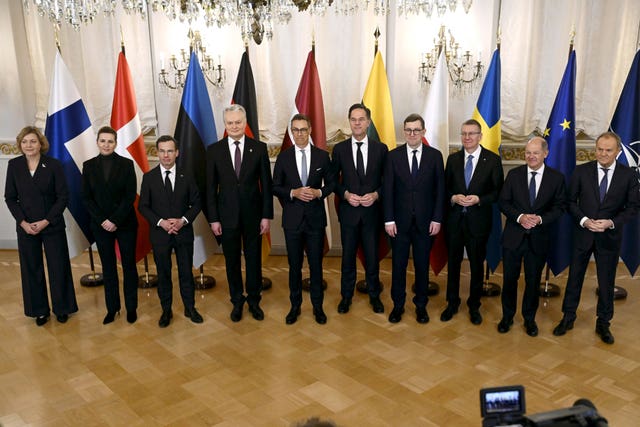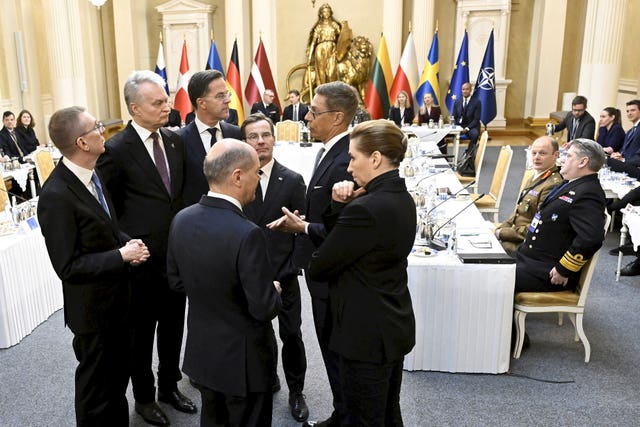Nato is launching a new mission to protect undersea cables in the Baltic Sea region after a string of incidents that have heightened fears of Russian sabotage and spying in the strategic region, the alliance’s leader said on Tuesday.
Secretary-General Mark Rutte said the mission, dubbed Baltic Sentry, will include frigates, maritime patrol aircraft and a fleet of naval drones to provide “enhanced surveillance and deterrence”.
“Across the alliance, we have seen elements of a campaign to destabilise our societies through cyber attacks, assassination attempts and sabotage, including possible sabotage of undersea cables in the Baltic Sea,” he told reporters after a meeting in Helsinki with the leaders of Allied Baltic nations.

The fleet is made up of hundreds of ageing tankers of uncertain ownership and safety practices that are dodging sanctions and keeping the oil revenue flowing to Moscow.
Finland President Alexander Stubb said the issue had been discussed at the meeting, which also included leaders from Germany, Poland, Denmark, Sweden, Latvia, Lithuania and Estonia, but did not give details.
Polish Prime Minister Donald Tusk, speaking at a later news briefing in Helsinki, said he had not yet received a report on the matter but would inform the public once he learned more.

“Across the alliance, we have seen elements of a campaign to destabilise our societies through cyber attacks, assassination attempts and sabotage, including possible sabotage of undersea cables in the Baltic Sea,” he said.
He added that Nato’s adversaries must know the alliance will not accept attacks on its critical infrastructure, saying: “We will do everything in our power to make sure that we fight back, that we are able to see what is happening and then take the next steps to make sure that that doesn’t happen again.”
Pressed for details about what the operation might involve, Mr Rutte declined to provide ship numbers, saying the figure could vary from week to week, and “we don’t want to make the enemy any wiser than he or she is already”.
“We will make use of the full range of possibilities we as an alliance have,” he said, including “remotely operated vehicles” and drones.
Chancellor Olaf Scholz said in separate remarks to reporters that Germany will participate in the Baltic Sentry mission.
Asked whether that means Germany will contribute ships or surveillance planes and whether he made a specific offer, he replied: “We will participate with everything we have in the way of naval capabilities; that will vary as far as the concrete possibilities of deployment are concerned.”






